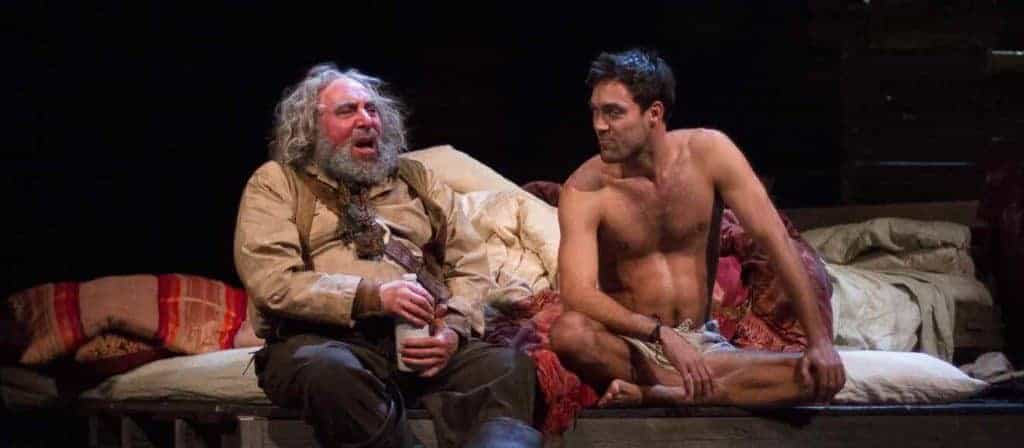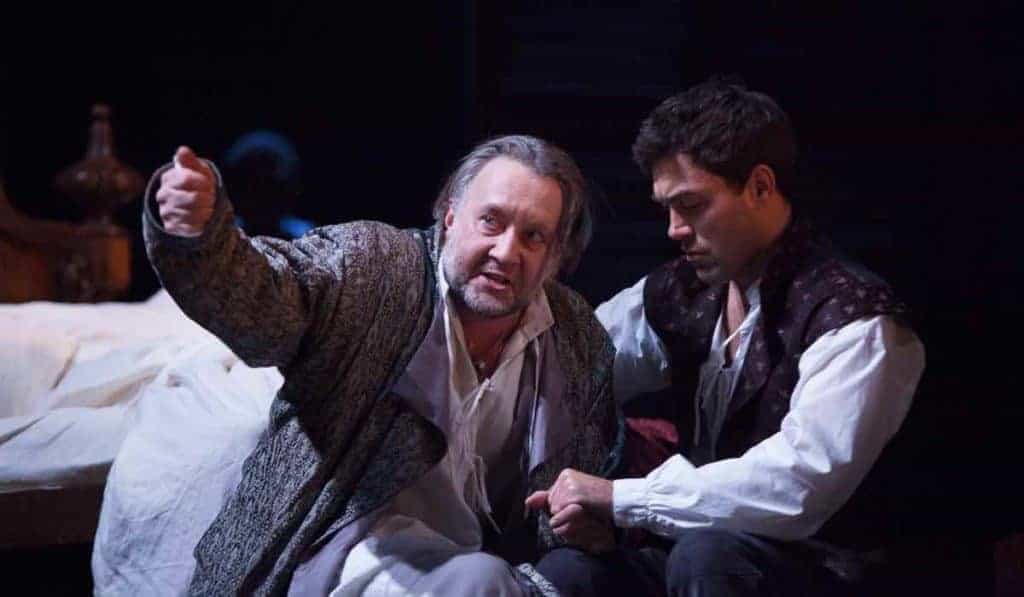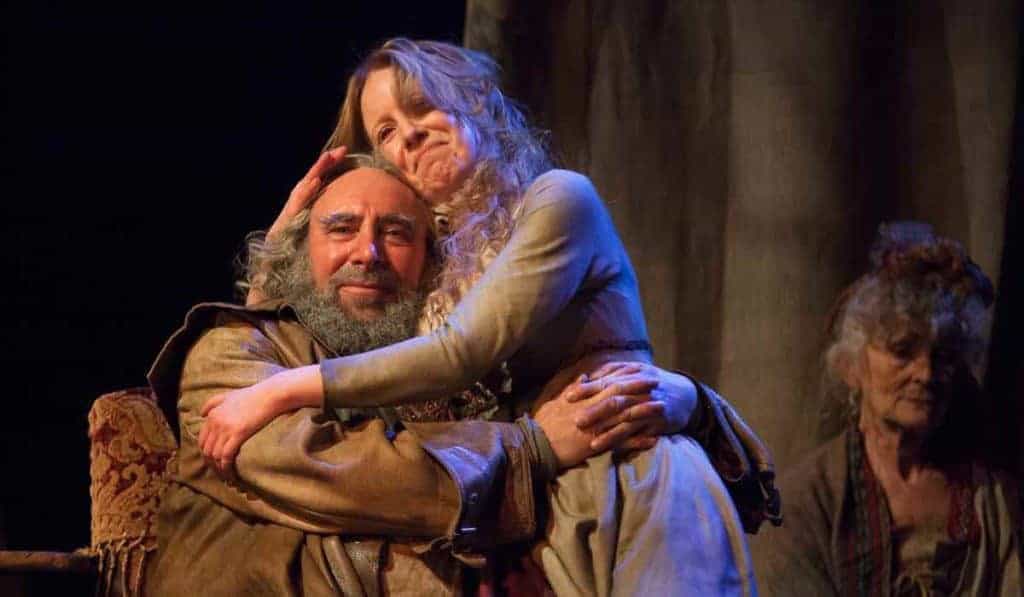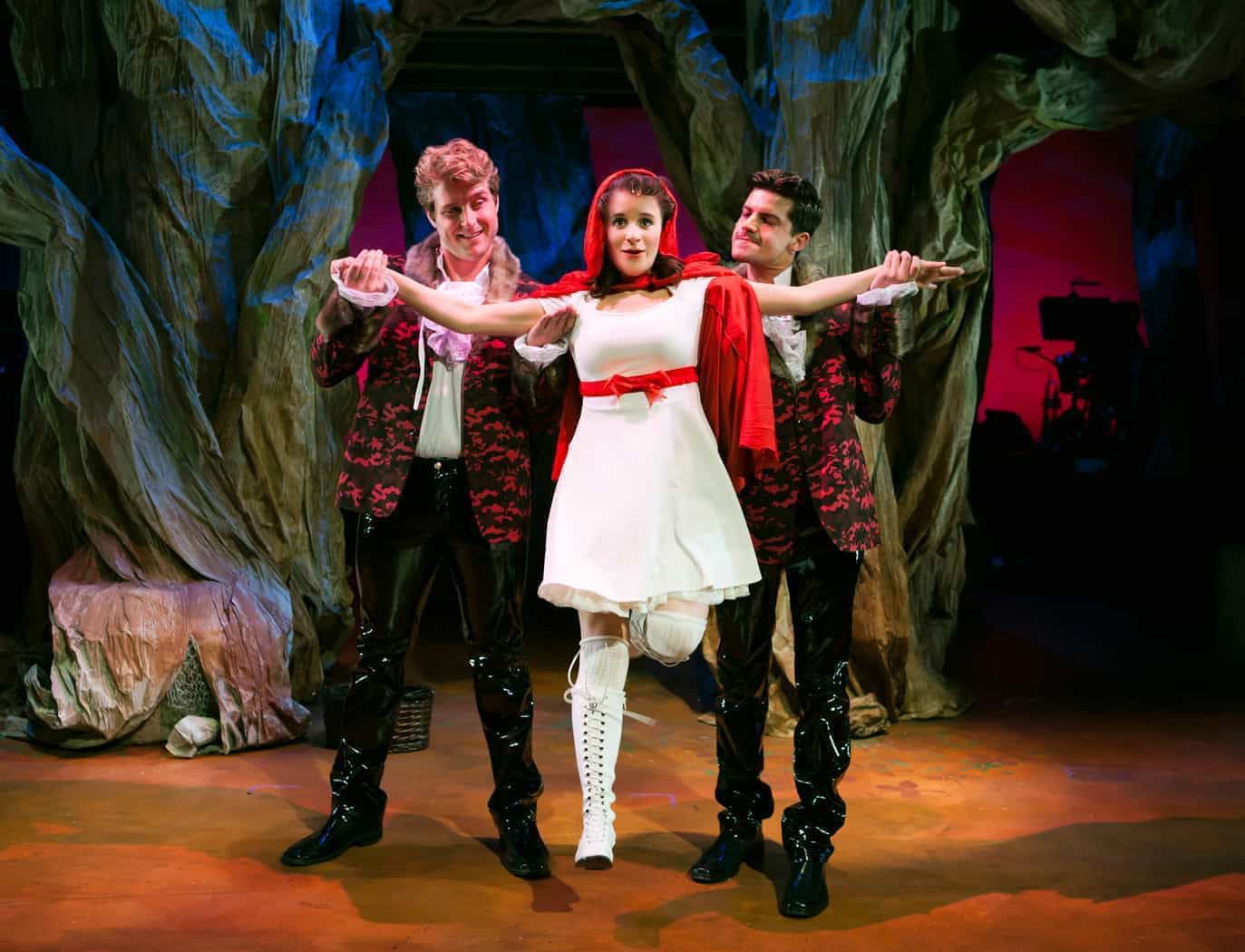
Taking a page out of the National Theatre Live’s playbook, the Royal Shakespeare Company has finally started broadcasting their productions to cinemas around the world, and then, unlike NTLive, making them available on DVD. Following the broadcast of Gregory Doran’s Richard II, the RSC has just broadcasted Doran’s productions of the next two Henriad plays.
In any other year, I think I’d be showering the RSC’s recently broadcast productions of Shakespeare’s Henry IV Part 1 and Henry IV Part 2 with unfettered praise: Prince Hal’s (Alex Hassell) growth, from wild boy to mature man ready to assume leadership, is perhaps the most pronounced and well-motivated that I’ve ever seen; Antony Sher’s Falstaff is an excellent old fat man so used to being able to talk himself out of things that he loses it when he suddenly can’t; and Gregory Doran’s production does so much with time-of-day lighting to make the very spare stage feel lived in. But Richard Eyre’s phenomenal film versions of the plays for The Hollow Crown series are still fresh in my mind and almost impossible to live up to.
Sher gives a perfectly excellent reading of Falstaff as a perpetually red-faced, affable man who talks deliberately and slowly: the signs of a man slowing down and also of a man who knows he’s compelling enough to hold people’s attention for however long it takes him to get out his speech. Yet the ghost of Simon Russell Beale’s performance still lingers in my head: his Falstaff would often talk so fast as a means of ensuring that nobody noticed he was using his words to hide his insecurities. And Beale’s Falstaff knew his audience so well that he varied his pacing to best suit his performance at the Boar’s Head. As Britain’s greatest working Shakespearean actor of his generation, Beale is a tough act to follow. My sympathies to anyone else attempting King Lear this year.

Because Doran’s Prince Hal starts out utterly immature – we first meet him engaged in an orgy at the Boar’s Head, in bed with Falstaff and a number of whores – some of the earlier scenes in Henry IV Part 1 lose credibility or depth. When Hal explains that there’s an impending expiration date on his time at the Boar’s Head, he doesn’t seem to take it seriously, nor do we really buy that his actions are as calculating as he claims them to be. It could be that he’s just rationalizing, but it also means that unlike Tom Hiddleston’s Hal, Hassell’s Hal doesn’t desperately need the attention he gets at the Boar’s Head, nor does he fully understand how little time he has left. He’s still too caught up in the party.
The biggest missed opportunity is in the play extempore, which, in Doran’s version, plays entirely as a joke: never does it dawn on either Hal or Falstaff that they’re acting out their not-so-distant future. It’s one of Shakespeare’s most brilliant scenes: what starts out as child’s play turns into prophecy, and in Eyre’s film, it’s so tense and foreboding that I often cry. Here, it barely registers as a meaningful scene. Although Hal has always been a little shit, he’s usually charming and charismatic enough – and not quite so petulant – that you’re willing to forgive him for it: this is less the case with Hassell’s Hal.
The advantage of Hal starting out as such a degenerate is that there’s more room for growth. Alex Hassell commendably and gradually transforms our Hal into a more and more mature man because of what he goes through: his father’s echoing disapproval, his experiences at war, believing Falstaff to be dead when he isn’t which lets him prematurely emotionally separate himself from Falstaff, and finally learning the truth about what his so-called friends at the Boar’s Head think of him and how they plan to use him. It lends meaning to each and every one of Hal’s experiences, much as each of the challenges in Henry V will further shape him into the highly capable leader needed at Agincourt.

On the whole, Doran’s version may not be as strong as Eyre’s, but like Joss Whedon’s Much Ado About Nothing, which was still inferior to Kenneth Branagh’s, it does bring up many interesting issues. For one thing, the Hotspur (Trevor White) of Doran’s play is such a petulant figure that it makes sense he’s so inarticulate and headlong. It also draws attention to how clueless Henry IV (Jasper Britton) is about his son, Hal: Hotspur is no prize, and Hal may be his greatest admirer rather than a threat to his life (When Henry IV tells Hal about how he campaigned for the throne, Hal looks like he knows this story well and cherishes it.).
It is, however, somewhat perplexing that Doran has then also made Hostpur’s wife (an exquisite Jennifer Kirby) so together, strong, and self-assured: I can’t even begin to understand why she would have married this oaf. The strong sexual attraction that tied the pair together in Eyre’s version was more credible. It’s in Henry IV Part 2 that Doran’s approach really starts to pay off. While Hal is still busy having a laugh at the Boar’s Head, it starts to become impossible to ignore that his friends take things more seriously. When Hal receives an overly ornate and familiar note from Falstaff, he initially looks at it mockingly, but the fun ends when he gets to he postscript: Falstaff warns Hal that Poins expects Hal to marry his sister.
When Hal overhears Falstaff denounce him as a “weak mind and an able body,” it begins as a comic scene: as Falstaff starts to talk to Doll Tearsheet in what he thinks is confidence, as soon as he mentions Poins, Poins’s head pops up from behind the curtain to eavesdrop, and then so does Hal’s at a similar beckoning. But what begins as a joke, Hal is ultimately forced to see as no laughing matter: if this is what Falstaff really thinks of him, can he be trusted? Is Falstaff only friendly toward him so that he can use him?
This makes Hal’s eventual public denouncement of Falstaff, telling him “I know you not, old man,” extremely well motivated. Hassell barely holds back his tears as he banishes Falstaff, hurting deeply at the thought of losing his friend: in Doran’s heart-breaking rendition, it’s not just for his image that King Hal casts off Falstaff, but because he worries how far Falstaff’s cold-blooded ambitions might go now that he’s in power. If they weren’t really friends when he was a prince, they can’t be friends now that he’s the king. It also helps that in a previous scene, Hal has watched all his brothers kneel before him in fear: if his new role will cause such a schism in his own family, he can only imagine how much more it would change his relations with his lower class friends.
Perhaps the best argument for doing Henry IV Part 2 as a piece of theatre, the way Shakespeare intended it, rather than as a film (and Eyre’s really is great), is that there’s no need to show Henry IV early on in the play, just to remind the audience he exists. In Shakespeare’s text, King Henry IV only appears at the beginning of Act 3, entering his own play in the middle. When Henry IV first stalks onto the stage in Part 2 to deliver his “uneasy lies the head that wears a crown” speech, he walks through the Boar’s Head set and past Mistress Quickley who is sleeping. It may be on the nose, but it also has the benefit of making King Henry IV already seem like a ghost haunting his own play: how else could he logically be passing through the Boar’s Head? Even in the later parts of the play, Henry IV still only ever appears at twilight: he’s already a creature of the night, at the end of his line. The impending end of Henry IV’s reign is built into the structure of the play: if you cut it, or change it, as film requires, it loses some of its impact.
For information on future screenings in your area, check out the RSC onscreen website.

